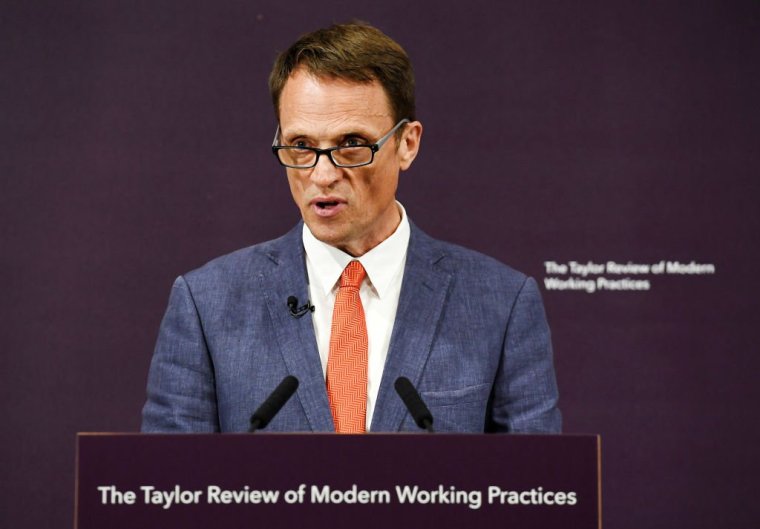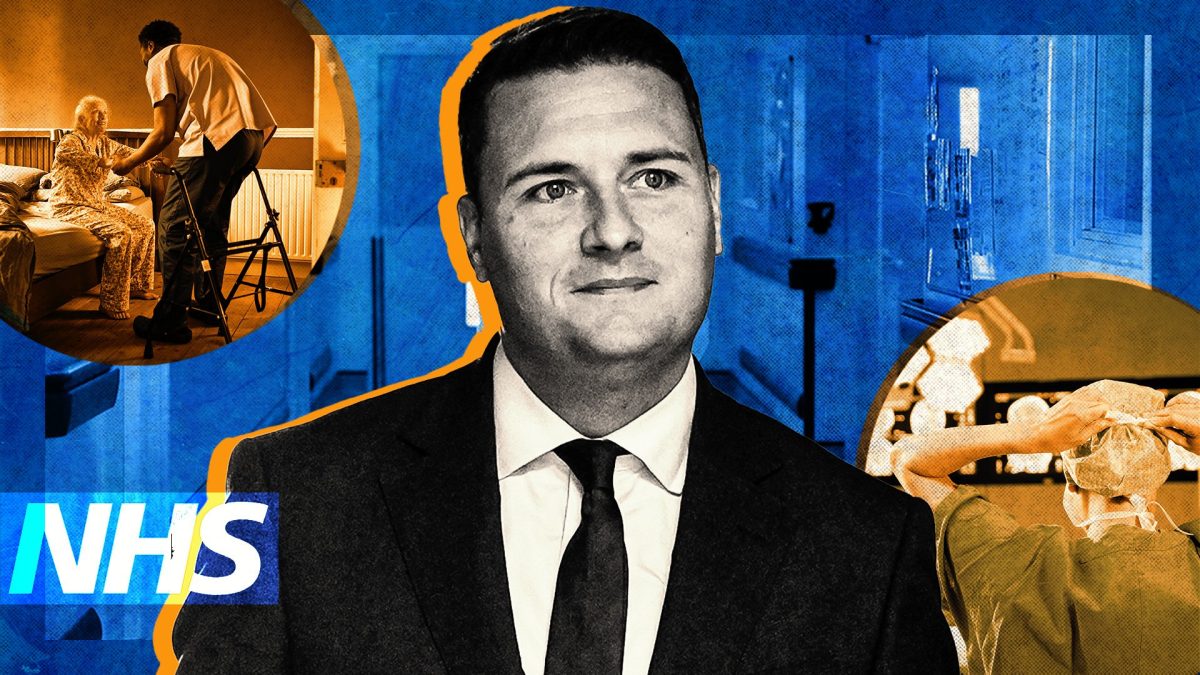NHS Confederation chief Matthew Taylor argues that bringing in capital funding will free up public cash to address the £13.8bn backlog in repairs to England’s crumbling hospitals
The NHS will not be able to build the hospitals it needs to meet the Government’s pledges on healthcare without private funding contracts, a senior health leader has warned.
Rachel Reeves is being urged to reverse a ban on private capital investment for NHS infrastructure and introduce a new Private Finance Initiative (PFI) deal to help build modern hospitals.
The Department of Health is expected to be the biggest winner in the Chancellor’s spending review this week, with a boost of up to £30bn at the expense of other public services, including police and councils.
However, even with the funding, a quarter of the new hospitals that make up the Government’s New Hospital Programme – which was first introduced under Boris Johnson but has had a radical overhaul under Wes Streeting – are not expected to begin their construction for at least a decade.
The Health Secretary himself has admitted that the NHS “desperately needs new buildings and new hospitals”, describing it as “quite literally crumbling”.
The i Paper understands that officials could consider PFI contracts as they examine proposals for more investment in the NHS.
Matthew Taylor, chief executive of NHS Confederation, said that bringing in capital funding for new buildings and facilities will free up public money to address the maintenance backlog – to bring current NHS hospitals up to minimum standard – which now stands at £13.8bn, more than the annual cost of running the entire NHS estate.
PFI contracts – deals that will have private investment fund the building and maintenance of hospitals and schools in return for regular payments over several years – were introduced by John Major’s Conservative government and expanded en masse under Tony Blair, but they faced criticism for being costly and inflexible, lasting multiple decades.
However, the NHS Confederation argues investment in the NHS is failing to keep up with the growing needs of its patients, leaving the health service in England with a funding shortfall of £3.3bn a year.
Taylor urged Reeves to use her spending review to specifically lift the PFI ban so that the NHS can build new facilities “at pace”, including much-mooted neighbourhood health hubs, and while also supporting economic growth and local regeneration.
“Many major hospitals would not exist today without private investment, and only a handful have been built with purely public capital since PFI was wound down,” Taylor told The i Paper.
“While there are justified criticisms of PFI, we should learn the lessons and explore the benefits so that the NHS can get the money it needs for new facilities. The previous government’s delayed and underfunded New Hospital Programme demonstrates the limits of the pure public capital approach. In contrast, almost all previous private projects have been delivered on time and on budget.”
Why private contracts were banned
The decision to ban PFI was made by the then-Chancellor Philip Hammond in 2018 after a National Audit Office review of the model revealed it was a potential risk to government finances – costing taxpayers billions of pounds more than public sector alternatives. Existing PFI contracts remained in place.
A 2019 report by the IPPR think-tank found NHS hospital trusts were being crippled by PFI: an initial £13bn of private sector-funded investment in new hospitals would end up costing the NHS in England £80bn by the time all contracts come to an end, it said.
- The £1.2bn PFI contract for Barts Health trust in London, the largest by value in the English NHS, paid for the building of the Royal London Hospital, which opened in 2012 and has 845 beds spread across 110 wards. However, the entire project will have cost the trust £6.2bn by the time it ends, according to Treasury estimates. Barts spends £116m a year servicing its debt, which is 7.66 per cent of its income, according to the IPPR report.
- It said the Royal Free London NHS Foundation Trust would pay back £921m over 33 years on a capital investment of £54m, and Buckinghamshire Healthcare NHS Trust would pay back £1.5bn over 36 years on a £92m investment – both trusts paying 17 times the initial investment.
What will be different this time?
Taylor suggests three vital lessons will need to be learned to avoid past mistakes.
- To keep capital projects “off balance sheet” as this will prevent the cost of them from contributing to the government’s overall debt, while still contributing to economic growth and regeneration.
- To have an appropriate agreement between the public and private sectors over the level of risk they are taking should the project fail, be changed, or overspend.
- To ensure effective contractual management, especially around ongoing maintenance and services, so that the NHS would not pay high costs for routine maintenance that it could carry out itself.
Taylor, a former senior adviser to Blair, said: “Given the precarious state of public finances, it is vital the NHS be allowed to work with private partners to inject much-needed capital into the service. This is better for the health service’s finances and better for patients, who will benefit from receiving care in 21st century healthcare facilities.
“This is not about resurrecting the old model of PFI but building a new model that learns from our own experiences and other countries around the world.”
 Matthew Taylor has warned that the NHS has struggled for investment (Photo: Andy Rain/Pool via Bloomberg)
Matthew Taylor has warned that the NHS has struggled for investment (Photo: Andy Rain/Pool via Bloomberg)
NHS Confederation, the membership organisation that speaks for the whole healthcare system in England, Wales and Northern Ireland, cited Wales and Australia as good examples of countries using private investment to modernise their healthcare systems.
How the NHS compares to other countries
The Welsh government holds a 15 per cent equity stake in The Velindre Cancer Centre currently being built in north Cardiff, while private investment makes up the rest of the funding.
After the centre is built the Welsh government will pay performance-based annual payments for the contract length, following which the centre will be transferred fully to public ownership.
In Melbourne, Australia, the A$1bn (about £481,000,000), 130,000-square-metre Victorian Comprehensive Cancer Centre is publicly owned and publicly operated, but long-term maintenance is paid for with private investment.
The Government said it inherited a “crumbling NHS estate” when it came to power last year and is increasing capital spending by £1.8bn to £13.6bn in 2025-26.
A spokesperson said: “As we look to reform our NHS, shift care out of hospitals and into the community, and modernise technology, how we run our health service will change. We will continue to work with and trust frontline leaders to take decisions that will deliver the best healthcare for their communities for the future.”
